The Pianocenter at the DreisPitzpassage (stylized), in the middle of an historically active Berlin street, closed at the end of April. Either the publications I contacted about this event weren’t interested, or their publishing schedules were too far pre-planned for any mention of it to be timely. It feels timelier than ever from my end-of-year vantage point.
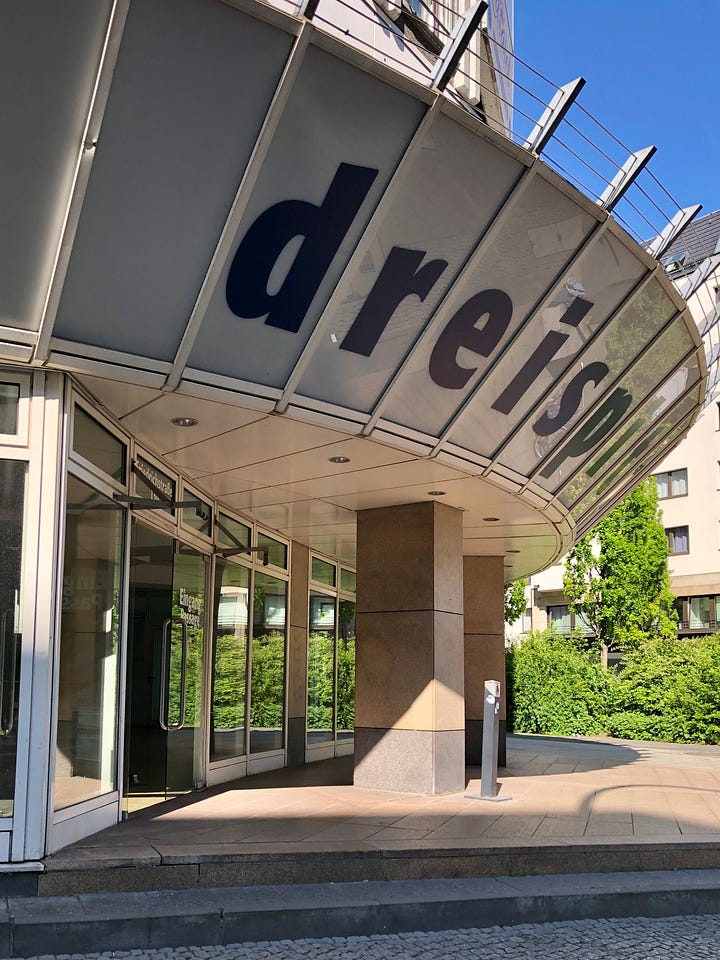
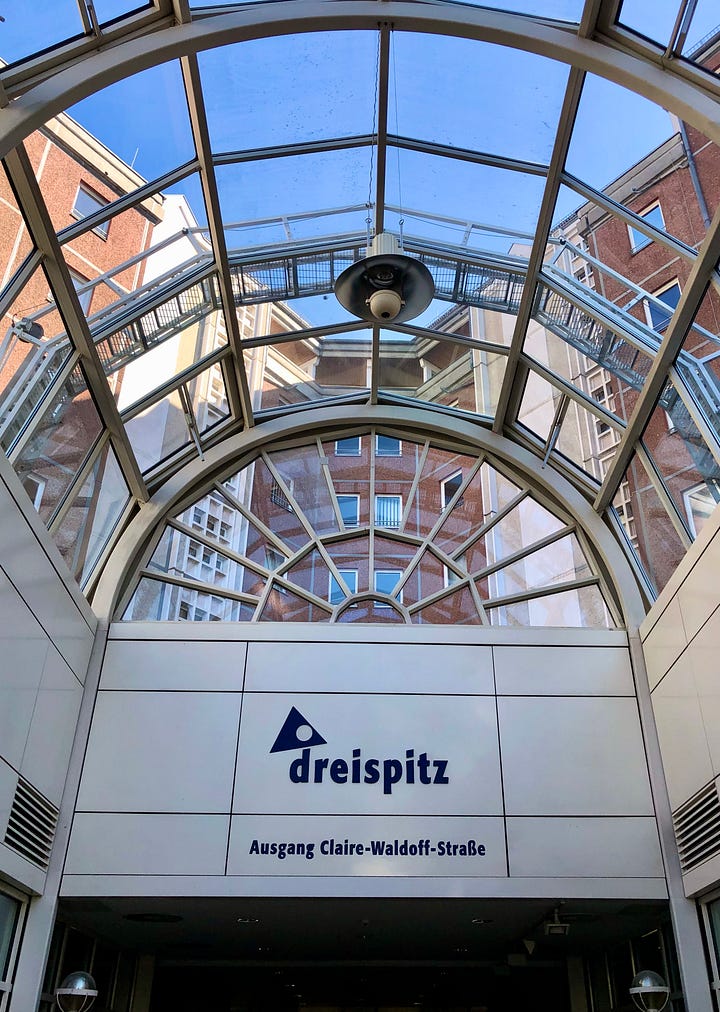
I don’t know when the Pianocenter opened, nor how long it resided at Friedrichstraße 130, nor whether it had had any prior residence(s). I feel like I heard tell that it would simply be relocating, but I can’t even confirm this. I do know that the first friend I connected with upon arriving in the city—a college acquaintance, in fact, who became one of my closest Berlin people—recommended it when we met for brunch on a stinging July morning in 2019. It was a retailer and refurbisher, and it had two primary practice rooms, one with an upright and one with a baby grand, which could be rented out at roughly 3€ and 4€ an hour respectively. I, a largely self-taught pianist who had grown dependent on my parents’ Kawai over the years, was hungry for just such an arrangement.
Maybe those rates, almost anachronistic for how accessible they were, proved finally to be an unsustainable business model. But the place did not want for renters in the four years and ten months I patronized it. Booking happened online, the grid of green ‘free’ slots unfailingly going red over the course of a week, some dates farther in advance. The door code was emailed to you an hour ahead of the slot you’d booked, so you couldn’t get in early unless someone was already inside. Often, if I had booked just one hour and the next hour was empty—or if my successor had yet to arrive—I would linger. The baby grand room (Flügel) had a wall of windows that allowed me to keep an eye out for latecomers. The upright room (Klavier) had sound-soaking foam nearly the length of its windows; I had to listen for a knock and be prepared to vacate at a moment’s notice, accompanied by a sheepish/conciliatory passing of the torch.
I never booked more than two consecutive hours. By then my hands would ache and my heart would be too full.


The windows made me nervous. Playing in a semi-public forum made me nervous. I got into the piano for reasons of pop music, and when I call myself ‘largely self-taught’ I mean I have the ear to pretty easily mimic what I hear. I am not trained on the instrument the way I am in voice, and I was not playing Chopin or Liszt the way others were doing, which I happily overheard when I arrived early. I didn’t go in with sheet music; I went in knowing, by heart, the songs I wanted to practice. After experiments in my youth with the basic-chord contemporary pop my friends and I listened to, then more sophisticated forays into my beloved musical theatre, I’d reached true comfort on the keys through—of all catalogues—Elvis Costello. Steve Nieve is truly one of my major influences; I wanted to be one of the Attractions. I used those familiar songs (thank you, This Year’s Model and Armed Forces) to settle into these rooms so far from home, and soon I was reaching deep and far into the songbooks I’d developed a yearning to know on an intimate instrumental level. Elton John, Brian Wilson, Joni Mitchell, Billy Joel, Randy Newman. Stuff people knew—or so I imagined—as well as I did. Any moment someone could walk by and recognize the song and, thus, the mistakes I was making. I would blush as I played, as if I were being watched.
Not once did I look up to find someone watching. (At least not in the room where I was visible.) This wasn’t a zoo, it was an educational environment populated by seasoned musicians who knew what it was like. Never mind that I too have the skill to register others’ mistakes, even in pieces I can’t name. And do I care? Sure—I care that they play, and I thank them for playing in a place where their efforts are audible. It’s the sound of healing and growth.
Healing and growth were also happening to me. Being a typically confident musician, I chafed at the thought that perceived errors could still embarrass me. I hated to admit that I was nervous at the prospect of being overheard in stages of imperfection. I didn’t want to be susceptible to that fallacious line of thinking. But my determination to know the music better reliably overrode my metatextual self-consciousness. Playing “She’s Leaving Home” always left me emotional. Deconstructing “God Only Knows” at last enabled me to comfortably support the claim that it is the 20th century’s greatest ballad. Stumbling upon familiar chords and accidentally cracking the code to a previously indecipherable song—Cat Stevens’ “Majik of Majiks” stands out in my memory—was one of the most satisfying things.
After a session I would pass the store window and ogle the instruments for sale, fantasizing about the little red electric piano with weighted keys tying together a future flat. Like with a jog, I didn’t have to guess: I knew that I would walk out of the Pianocenter refreshed, cleansed even, and in good spirits. The endorphins spoke for themselves.

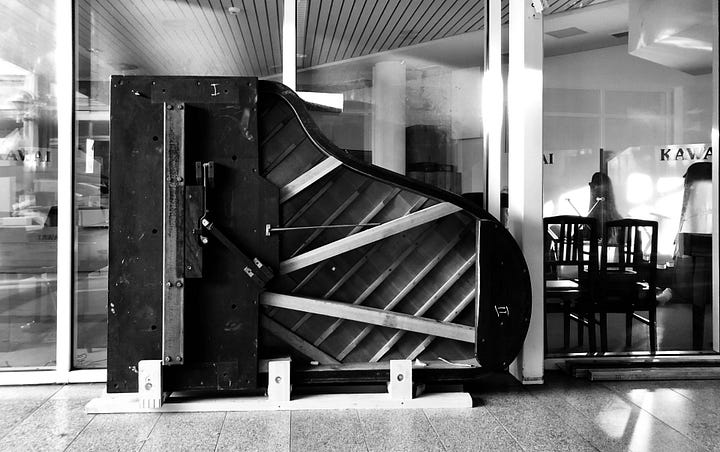
I brought my own converts into the fold. When a friend from the ukulele club proposed we start co-writing songs, I suggested what seemed to me an obvious rehearsal space. The sessions we spent there on either side of the height of lockdown were some of the happiest I had. We also met elsewhere, but, for as many instruments as we had between us, the lack of a keyboard was keenly felt.
I didn’t nab an electric keyboard until shortly before that friend returned to his native England. It certainly was convenient to be able to play anytime, and to assemble and disassemble as needed—I’d now attained the flat, which was lovely but nowhere near large enough to accommodate a full-size piano. Yet there was a magic to the necessity of the Pianocenter, the ritual of traveling to and fro with a to-go coffee in hand (and a route to match my every living situation), the singleness of purpose alone in a room with only equipment for company. My excursions dwindled in frequency. I only learned of its imminent closure a month prior, through a friend from the choir I had joined. A last hurrah was in order.
Here are the parting words of the day itself. I had a premonition that my first leave of Berlin was also drawing near, albeit little idea of the circumstances under which it ultimately happened. When it did, I handed my keyboard over to that trusted choir friend, and thus far in my southern interlude I see no equivalent of the Pianocenter at Friedrichstraße 130. As if I could have expected to.
Even so, I said it better then than I can now.
Keep me posted on your reincarnation.
Dedicated to Anya, Jon, and all the practitioners. Don’t stop.

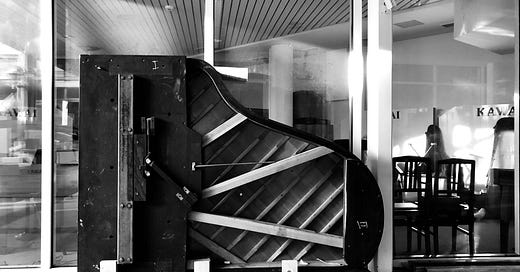


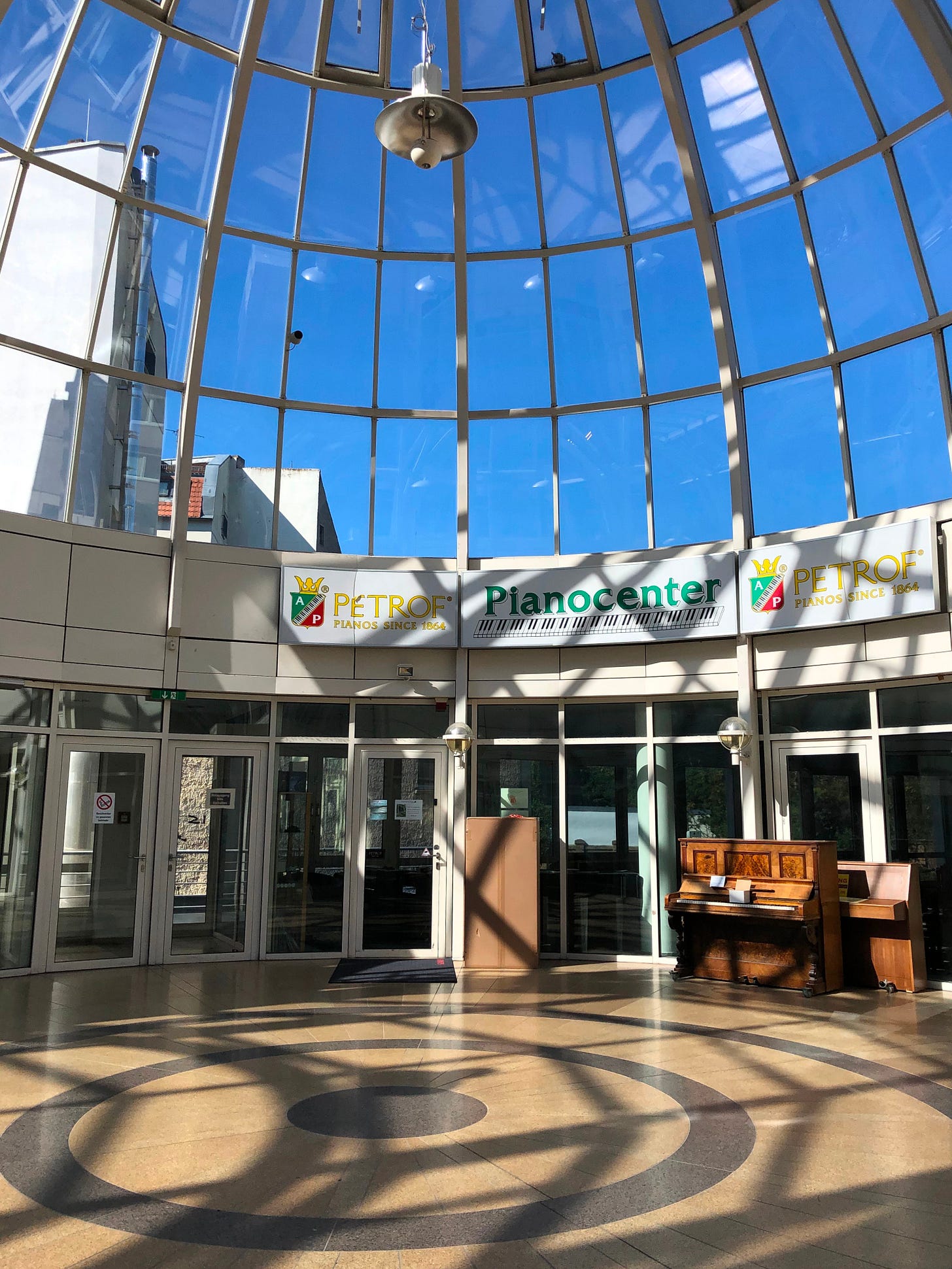
This is an splendid tribute to a place in time and music--wonderfully written and evocative of much more than the place. Your musical drive, the many small obstacles that are overcome as you strive to decode a work, your comfort in making music, and the fears that attend it. It's all there.